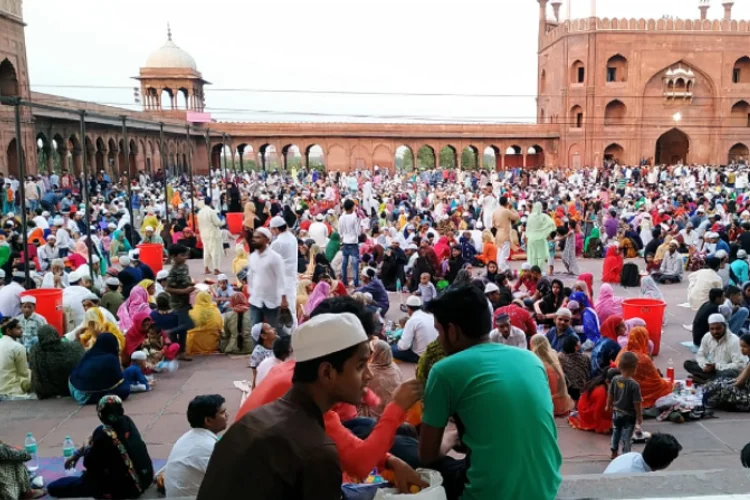Eman Sakina
Ramazan comes to a close with Eid al-Fitr. Yes, the holy month finally comes to an end and the joy of feasts, gatherings, new clothes, and ‘Eidi’ overcomes. Eid-ul-Fitr is the most important religious festival for Muslims and the religious holidays all around the globe. This event is celebrated with a lot of glitz and glitter all around the globe, especially in India.
For Muslims, the month of Ramazan is very significant. During this time, people observe a full day of fasting. It is also forbidden to drink water. They consume meals in the evening after saying prayers. The preparations for the Eid holiday have already begun. Children of all ages, young and elderly, seem to be excited, and crowds in marketplaces grow. Both the wealthy and the poor go out and purchase new clothing, shoes, and presents. As early as the morning of Eid, children, young and elderly, dressed in various unique outfits, sit on the head and begin depositing in the Idgah. They're all lined up and special prayers are said for them.
Identical scenes can be seen in all of the country's major mosques. On Eid, everyone sets their differences aside and meets and congratulates one another. On Eid, the Muslim home is transformed into a lovely and sweet, and clean place. In addition, a variety of meals are made. ‘Sewain’ is the main dish prepared for this festival. People visit their relatives’ homes to wish them a happy Eid. Mosques are illuminated.
This holiday is celebrated by all Muslims with tremendous fanfare and particular attention. The Eve of Eid is called ‘Chand Raat. The sighting of the moon is declared in loudspeakers or sirens. All household chores such as cleaning and washing the home and putting on new curtains etc are done the night before. The Eid holiday is full of joy, particularly when one is feeling well. The wealthy, the impoverished, the young, and the elderly all welcome the festival with enthusiasm. They buy new clothing, new decorations, shoes, slippers, and other material pleasures according to their power, strength, and interest.
The significance of Eid-ul-Fitr is purely spiritual. This day does not mark any historical event but its existence gives Muslims an occasion to offer thanks to Allah Almighty for having given them the strength and the will to observe fast and obey His commandments during the holy month of Ramadan.
Women find this festival so rejoicing as they get to wear new attires, accessories, bangles, and apply Mehendi. After offering Namaz everyone greets and embraces each other by hugging and saying ‘Eid Mubarak’. The elders give Eidi to the younger ones. Some people also visit fairs for enjoyment. The relatives, friends, and guests keep visiting each other’s houses for greetings and feasts.
Although Eid is meant to be a time of joy and celebration, one cannot divorce themselves from the misery of others. Muslims dress up, wearing their best and finest clothes. The new clothing represents spiritual renewal. The person leaves Ramazan, a month of self-discipline in a more beautified spiritual state.
Food is an important part of Eid. Eating takes the place of fasting just as ease in the next life will take place of challenges in this world. The Quran notes that in the hereafter, believers will be told: “Eat and drink with happiness because of what you used to do.” This means, that the reward of fasting is that one will enjoy never-ending buffets and luxurious meals in the hereafter. For Muslims, it is important to have this time with family so that they may celebrate one of the most important holidays of the year.

